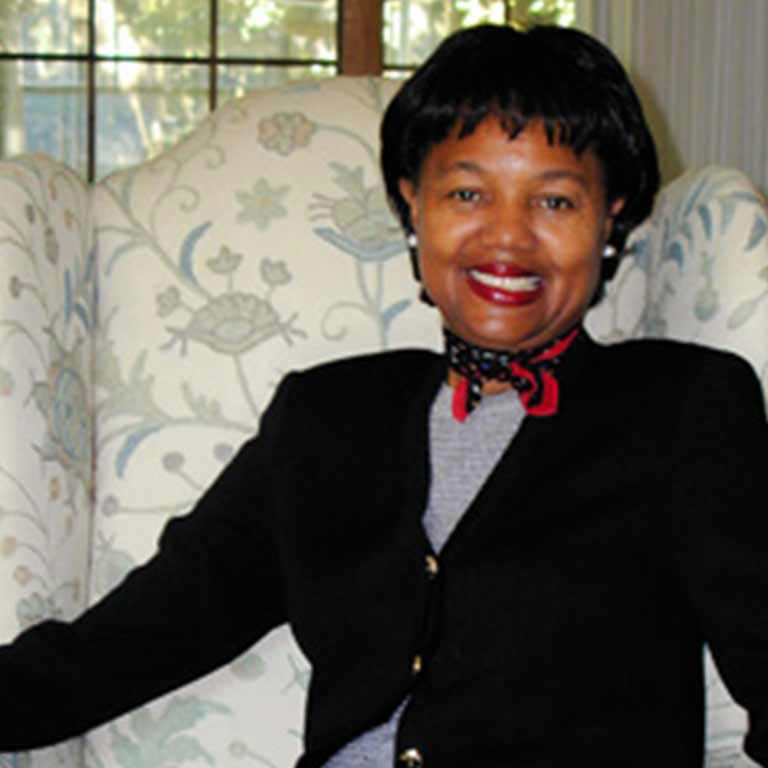In December 1863, according to David Blight, a crowd of revelers assembled at the Twelfth Baptist Church on Phillips Street in Beacon Hill, the black section of Boston, where a man stepped forward and proclaimed in a loud, sonorous voice, “It is coming! It is on the wires!” Then an old preacher named Roe stood with the venerable Frederick Douglass and shouted, “Jehovah has triumphed, his people are free.” Soon, the individuals assembled in Twelfth Baptist Church started singing, shouting, humming and hugging. There was joy in the land. There was cascading joy in the church—joy, joy, in anticipation of President Lincoln’s signing of the Emancipation Proclamation on January 1, 1863. And so it was. Douglass declared that date to be “the first chapter of a new history” for African Americans.
Juneteenth Celebration
Transcript of Professor Carolyn Calloway-Thomas’s Talk on June 18, 2020, at the College Forum and Listening Session on Anti-Racism Work, Indiana University

In spite of the meaningful midnight emancipatory activities that abolitionists Charles Lenox Remond, William Wells Brown, Harriet Beecher Stowe, Frederick Douglass, and others attended, and in spite of the fact that African Americans in Boston also celebrated the coming of the Emancipation Proclamation with music and refreshments, and poetry and speeches, not all slaves received word on January 1, 1863 that they were indeed free. And that their shackles—the iron cages-- had been removed. Why? How come? Because it was not until June 19, 1865, two years and a half after Lincoln had issued the Emancipation Proclamation that two hundred and fifty thousand slaves in the Lone Star State of Texas received word that hope had not altogether been extinguished. News traveled mighty slowly in Texas at the time. This means, most poignantly, that for two and a half years many slaves unknowingly and unceasingly toiled beyond the official expiration date of the wretched cruelty we all know as slavery. By that time, according to Henry Louis Gates Jr., close to two hundred thousand back men had enlisted in the fight for their freedom.
Freedom for Blacks in Texas finally came when Union Major General Gordon Granger issued federal orders in Galveston that the Civil War was over and that all slaves in Texas were no longer in bondage—like chattel. And the freed persons shouted, “Slavery chain done broke at last. Broke at last. Broke at last,” “Glory, glory hallelujah, I’s free,” and “There is a river!” One year later, in June 1866, African Americans began to celebrate what we gloriously and affectionately refer to as Juneteenth. Juneteenth stands for June plus nineteenth, in keeping with the creative and expressive linguistic utterances of African American people. This, my friends, is the historical basis for Juneteenth celebrations in African American communities throughout the land.
Isabel Wilkerson, in The Warmth of Other Suns: The Epic Story of America’s Great Migration, notes tellingly, “The People from Texas took Juneteenth Day to Los Angeles, Oakland, Seattle, and other places.” Let us add to Indiana University, to Bloomington and the state of Indiana.
Juneteenth celebrations are ritualistic commemorations that mark the date when slaves in Texas finally got word that they were ”free at last,” to use Dr. King’s words. Juneteenth celebrations are days for rousing songs, speechifying, and eating slave food delicacies. And for thinking about “What to the descendants of slaves is the meaning of freedom, justice, equality and fair play, in this country?” to echo a version of the interrogative from Douglass’s compelling 1852 speech, “What to the American Slave is the Fourth of July?”
Juneteenth celebrations are also days for measuring how far we have come, where we are, and what remains to be done. They are vivid, etching moments for juxtaposing slavery and freedom on the one hand against economic, social, educational and political progress in this country on the other hand.
This week, as we celebrate Juneteenth Day, and as we remember George Floyd, Rayshard Brooks, and other African Americans who have experienced police brutality, ugliness, inequality and violence, let us recognize, as faithfully as we can, that Black Americans count and are owed human dignity and standing in community. Therefore, every time we have a moment to uplift humanity, we should do so, passing along beautiful stories and actions that ignite and have an extraordinary impact on other people in edifying ways. This is where we go from here in solidarity with our sisters and brothers at Indiana University, and beyond, who are fighting keenly for justice, fair play and equality. One of the most exquisite things about Juneteenth Day is that it is a precious opportunity for Blacks to tell their human stories. Blacks are like African griots; we are storytellers—we tell stories that appeal ultimately to generations and generations and generations.
Nigerian novelist Chinua Achebe writes movingly, “It is the storyteller who makes us what we are, who creates history. The storyteller creates the memory that the survivors must have—otherwise, their surviving would have no meaning.” So, on the eve of Juneteenth Day, at Indiana University, what story do we wish tell to generations and generations and generations?
In the powerful words of philosopher Martha Nussbaum, “Being human means accepting promises from other people and trusting that other people will be good to you.” This CAN happen to generations and generations and generations!

Carolyn Calloway-Thomas is Professor and Chair of African American and African Diaspora Studies and Past President of the World Communication Association.


